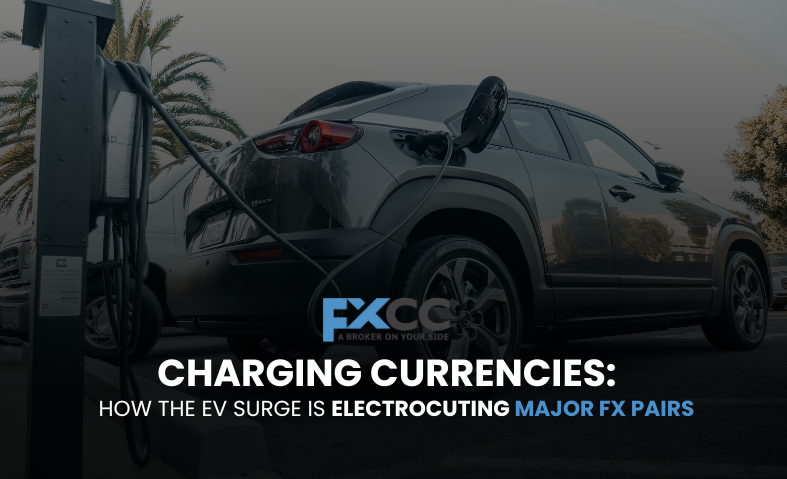The world is changing gears, literally. Electric vehicles (EVs) are zooming into our lives, and while they’re great for the environment, they’re also shaking up something most of us don’t think about much: how different countries’ money stacks up against each other. This EV surge isn’t just about cleaner air; it’s “electrocuting” major foreign exchange (FX) pairs, meaning it’s messing with the value of currencies all over the globe.
The Power of Raw Materials
EVs run on batteries, and those batteries need specific stuff: lithium, cobalt, nickel, and copper. Think of these as the new gold. Countries that have a lot of these materials are suddenly sitting on a treasure chest. For example, Australia is big on lithium, so as the world needs more lithium for EVs, the Australian dollar gets stronger. It’s like a small town that suddenly discovers a huge oil field – their local economy, and by extension, their money, becomes more valuable. This isn’t a quick fix; it’s a long-term shift in who has the economic power.
The Fading Spark of Oil Economies
On the flip side, countries that have traditionally made their money by selling oil are starting to feel the heat. As more people switch to electric cars, the demand for gasoline and diesel will slowly, but surely, go down. This means currencies from big oil-producing nations, like Saudi Arabia or Canada, might not be as strong as they once were. It’s not like they’re going to crash overnight, but their main money-maker is slowly losing its shine. People who invest big money are already seeing this coming and adjusting their bets.

Manufacturing Powerhouses Get a Boost
It’s not just about what’s in the ground. Countries that are excellent at making things, especially cutting-edge technology, are also seeing their currencies get stronger. Germany, Japan, and the United States are all pushing hard to make more EVs and the parts that go into them. This means new factories, more jobs, and a push for new technologies. All of this makes their economies healthier, which then makes their money more valuable. It’s like a positive cycle: making new stuff leads to selling new stuff, which makes your country richer and its money stronger.
The Infrastructure Investment Boom
Getting all these EVs to run smoothly needs a lot of new stuff, like charging stations everywhere, smarter power grids, and more ways to make electricity from clean sources like the sun and wind. Building all this “infrastructure” costs a ton of money and creates a lot of work. Countries with strong engineering skills and companies that can build these big projects are going to see a lot of investment. Their currencies could get a lift as they become key players in this worldwide building spree. Imagine all the cash needed to switch entire countries from gas stations to charging points – it’s a slow-motion economic earthquake.
New Risks on the Global Map
But it’s not all good news. The race for these battery materials is getting intense. Countries are fighting to make sure they have enough of these important resources. This “resource nationalism” can lead to arguments about trade and even political tension, which can make currencies jump up and down unpredictably. If a country that supplies a crucial EV part suddenly decides to hold back, it could cause big problems for the global economy and hurt the money of countries that depend on it.
Government Spending and Currency Health
Governments are also throwing a lot of money at the EV switch, offering special deals, tax breaks, and grants to get people to buy EVs and to get companies to build them. While this helps speed up the change, all that spending can add to a country’s debt. If a country’s debt gets too high, it can make their currency weaker. It’s a tricky balance: encourage new growth without hurting the country’s financial health.
The Promise of Energy Independence
Finally, consider this: if countries can power their EVs with electricity made right at home from renewable sources, they won’t have to buy as much oil from other countries. This “energy independence” can make a country’s economy much more stable because it’s not at the mercy of sudden jumps in oil prices. Over time, this stability can make a currency stronger. It’s a big, long-term win that money markets are starting to think about.

The Bottom Line
The EV revolution is a massive game-changer, not just for how we drive, but for how money moves around the world. Countries with the right raw materials are gaining power. Those tied to oil are facing a tougher road. Nations that can build and innovate are benefiting. And the massive investment in charging and clean energy is creating new economic champions. Keep an eye on currencies; you’re literally watching them “charge up” or “lose power” as this electric future unfolds.


